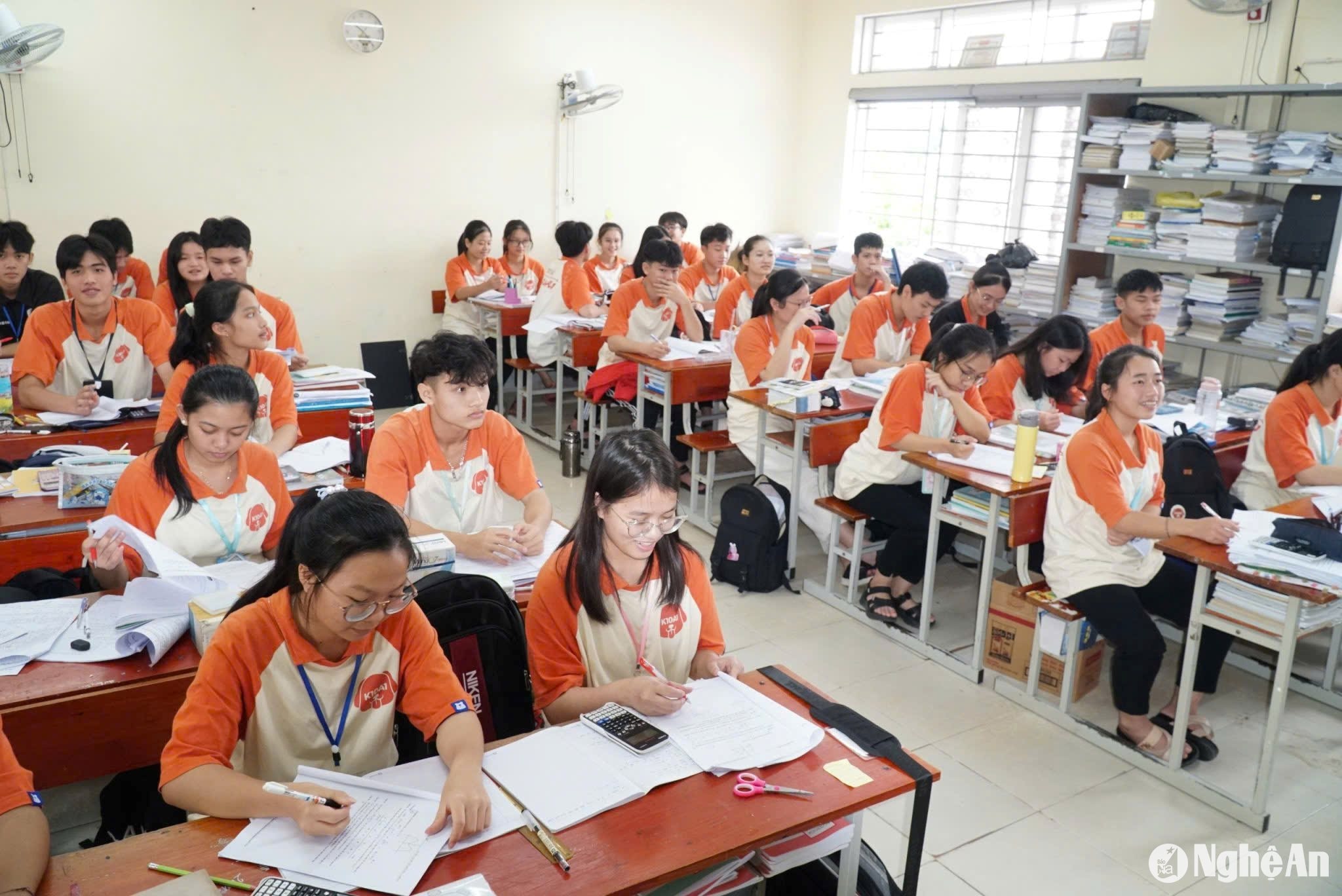Teaching and learning from a teacher's perspective
Extra classes are a real need. A significant number of students grow up and succeed thanks to extra classes; weak students need extra classes to supplement their knowledge; good students need extra classes to gain higher and more in-depth knowledge... if the students have legitimate needs and motivation to study, and the teachers are enthusiastic and fair in their career of educating people...
Teachers also have the right to earn extra income like other professions, exchanging their passion and knowledge for a legitimate source of income outside of class hours, thereby promoting their abilities, and society can promote their intellectual resources; the school has additional general welfare benefits on holidays, New Year, weddings, and funerals, supporting a portion of electricity and water bills, supplementing facilities and equipment, etc.Extra tutoringWithout certain value, it has little reason to exist.

However, when studying all week long, without any time to rest, mental and physical balance is alarming.
Many students come to class tired, sleepy, stressed because studying is too stressful, unintentionally stunting students' ability to self-study and research, adopting the mindset of "teacher reads, student copies" making them lack confidence, passive in thinking and affecting their ability to be independent, like a machine and bewildered in everyday life, they only know how to study and rely on their parents until they get married. Going to enough extra classes, students get "high scores", they are "happy", their families are proud, unintentionally making many students have illusions about their learning ability, parents have illusions about their children's abilities. Is that the result of the achievement disease that society is criticizing?
When the new regulations on extra teaching and learning were issued, many teachers lamented and sighed, losing their source of income from now on. That need is legitimate. But before becoming a professional, set your mission as an educator, aiming for the noble goal of training the future generation for the country to be both "red" and "specialized". Although it is not enough, the State still takes care of it, there is insurance when you are sick, a pension when you are old, and support from agencies and organizations in times of difficulty...
The subsidy period has long passed, but I still think of today's education. As long as you are a teacher, you "naturally teach extra classes". You teach a certain class in the morning, and that class in the afternoon. Management is afraid of interference, and interests try to "level the playing field" to keep things quiet, while the qualifications of teachers, teaching methods and skills are really uneven, not to mention there is a huge, very obvious difference, teaching is like a talking textbook. Many classes of students have to grit their teeth and endure teachers who have not yet achieved the required capacity without being selected. That's why there are letters asking for leave and changing teachers.
In the exams, it was found that many valedictorians and salutatorians came from rural areas with difficult economic conditions and did not attend extra classes at all. It is not satisfactory to say that schools do not organize review sessions, that the quality has decreased, or that they do not organize mass review sessions for all students to achieve good scores. In fact, the need for advanced study accounts for a small proportion, about 20-30%. The rest, partly due to lack of capacity, partly due to family conditions, partly due to post-secondary education, choose vocational training, go to work abroad, etc. Studying at university is very good, it is an environment for students to practice, strive and mature. But not all students have to follow the path of university to be successful in their careers. Therefore, they have the same goal of graduating from high school. This is also in line with the requirements of the labor market.
The new general education program not only focuses on equipping students with cultural knowledge, but also focuses on developing qualities and abilities, to help students not only study well but also develop comprehensively.
In addition to traditional subjects, schools need to organize many fun activities, sports, drawing, music, etc. so that students can participate enthusiastically. Teachers can conduct classes on time according to regulations to ensure students have enough knowledge and meet the requirements of the educational program.
The elimination of extra teaching and learning in the context of education reform and improving training quality helps reduce pressure on students, giving them time to rest, participate in extracurricular activities and develop life skills; reducing the financial burden on families, especially for low-income families.
This limits inequality in education, where students who do not have enough economic conditions may be disadvantaged; aims at quality education in regular school hours, promotes and encourages teachers to use more effective teaching methods so that students can grasp lessons right in class; contributes to preventing the commercialization of education, affecting professional ethics, losing the trust of parents and society in the education system; helps diversify forms of creative learning, experience, practical research and self-study.
Modern education focuses on developing creative thinking, soft skills and self-learning ability instead of cramming knowledge. Eliminating extra classes will help move towards a learner-centered education. Instead of chasing scores, students can spend time exploring personal interests, participating in extracurricular activities and practicing life skills. This not only helps them develop comprehensively but also arouses a true passion for learning. In addition, reducing academic pressure also creates conditions for families to have more time to connect, support and accompany their children on their journey to adulthood.
